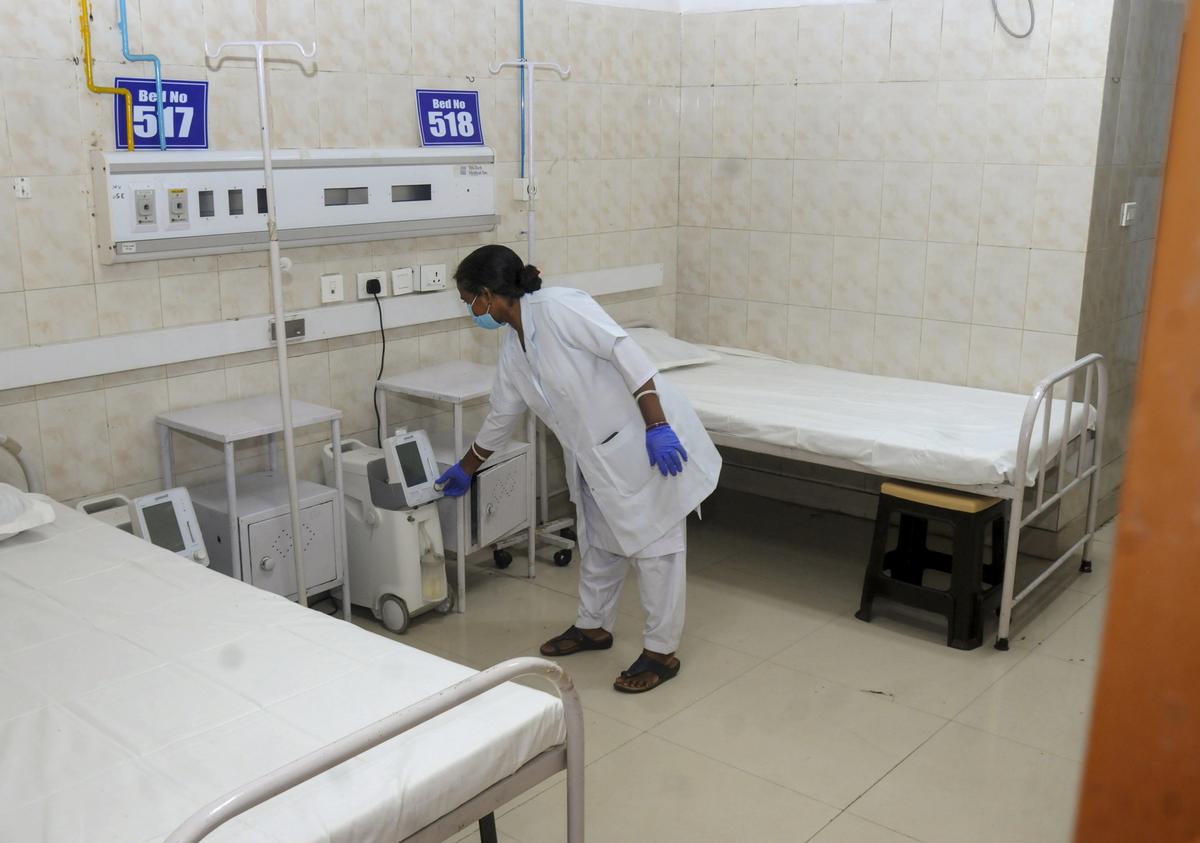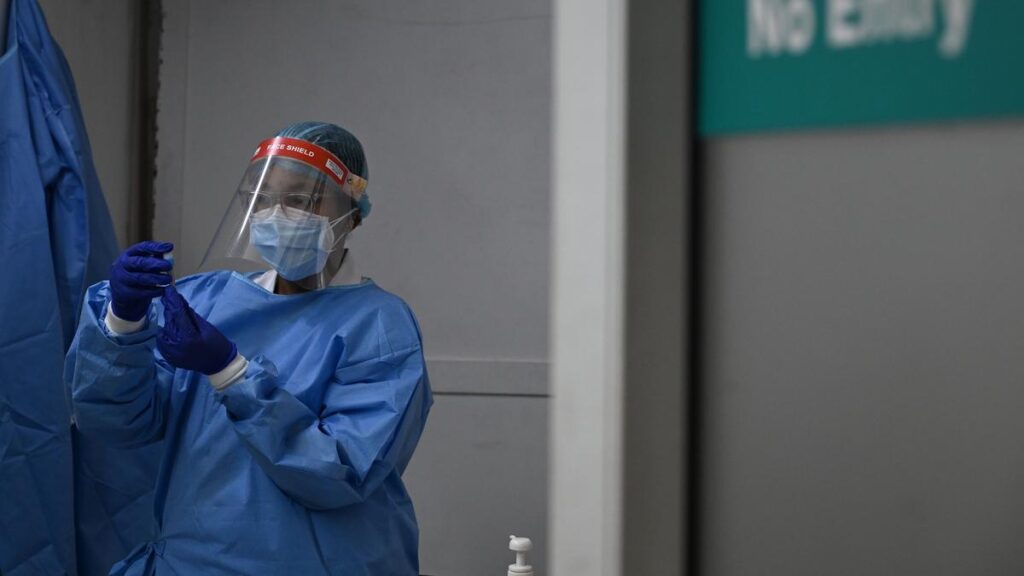Over the past few weeks, headlines around India and Southeast Asia have centered around a virus that the world has wanted to forget: Covid-19. At first, an uptick in cases in Hong Kong, Singapore and other parts of the region caused concern. Gradually though, India too, witnessed a surge in cases, with numbers as of Thursday, June 5, standing at 4,866, and fatalities at 51.
Doctors and experts have said time and again that there is no reason to panic – spikes and dips in Covid-19 cases are expected; the virus they say, is co-circulating with other seasonal infections and no major waves are expected. Misinformation in fact, is harder to battle, they point out.
Residents however, are raising questions about the Covid-19 vaccines: it may be recalled that India launched the world’s largest Covid-19 immunisation drive in January 2021. To date over 220 crore doses of Covid-19 vaccines have been administered in the country as per the Co-WIN dashboard. These were primarily of the two vaccines available then, AstraZeneca’s Covishield and Bharat Biotech’s Covaxin.
Also Read: Readiness, not panic: On India and COVID-19
What is the vaccine situation now?
Rajiv Bahl, Director General of the Indian Council of Medical Research (ICMR), the country’s nodal scientific body, has said there is absolutely no need to initiate mass booster doses for Covid-19 vaccination at present, and neither is there a direction from the Central government for this. Speaking about the rising number of Covid-19 cases in India, Dr. Bahl however noted that individual doctors could recommend booster doses to patients on a case-to-case basis, depending on the needs of individuals.
He further explained that the need for mass vaccination, while not felt at present, could arise, with perhaps a mutation in the virus or its spread. “For that, India already has the capacity to scale up production and provide for the general public. We have done this before and there is no need to panic,” he said, reiterating that as of now there was no need for individuals to rush in to get a booster vaccine.
Since vaccines used in 2021 and 2022 have now fallen into disuse and expired, there are no stocks at present, a government official said, adding however that the government could direct manufacturers to produce more stocks as and when necessary. Most States, including Kerala, Tamil Nadu, Karnataka and West Bengal have no stocks or supplies of the vaccine at present either in the government or private sector.
A street vendor arranging fresh stock of face masks displayed for sale in Thiruvananthapuram
| Photo Credit:
NIRMAL HARINDRAN
Understanding the variants driving the spike
As of now, the variants of Covid-19 doing the rounds in India are descendants of the Omicron variant, first reported in November 2021. The emerging sub-variants – NB.1.8.1 and LF.7 – that are driving the current COVID surge are descendants of JN.1, a sub-lineage of the Omicron BA.2.86 variant.
In Kerala for instance, a senior Health Department official said: “Almost all of the samples sent for whole genome sequencing from the State have shown that the circulating virus variant is LF.1, one of the descendants of Omicron, the immune evasiveness of which is quite well known.”
These sub-variants, doctors say, are, so far, causing mild illnesses. P. Senthur Nambi, senior consultant, Infectious Diseases, Apollo Hospitals, Chennai, said that most of the Covid-19 patients he had seen so far have done well. “Most of them had only an upper respiratory infection. Gone are the days when Covid-19 affected the lungs causing pneumonia and breathing difficulties. These patients were managed based on their symptoms and most of them did not require any Covid-specific antiviral medications. Prior exposure to the infection, the effects of the vaccines taken or a combination of both factors with vaccine-induced antibodies could be playing a protective role,” he explained.
Cases this time around have mostly been mild, the ICMR has maintained, with reported symptoms akin to those of the common cold or seasonal flu, including fever, cough, sore throat, runny nose, headache, fatigue, body aches, and loss of appetite.
“The key difference with these new strains,” said Sujan Bardhan, consultant (tuberculosis & chest diseases), Narayana Hospital, RN Tagore Hospital, Kolkata, “is their speed, not their severity. Hospitals are well-prepared and the healthcare system remains under no immediate strain. Nonetheless, the importance of basic preventive measures cannot be overstated.”

Are vaccines needed at present?
Doctors across the board say that at present, they see no need for a mass vaccination drive.
“By the time Omicron ran its course, almost all of our population had been exposed to the virus. Even when this antibody protection wanes, the long-term immune memory remains. This innate immunity plus the vaccine-derived immunity through good coverage of the initial two doses means that most people have strong hybrid immunity against Covid-19,” the Kerala health department official said, adding that the previous vaccines may not even be very effective against the Omicron variants – they would however, offer protection against serious forms of the disease.
Though two indigenously developed nasal vaccines specifically targeting Omicron variant from Bharat Biotech and Indian Immunologicals as well as another indigenous mRNA vaccine for the Omicron variant were made available in the Indian market, the uptake was low, doctors said.
Kiran Madala, a Hyderabad-based doctor, part of an international group of genetic epidemiologists under the COVID Treatment Exchange Organisation, said the current World Health Organization guidelines recommend vaccines primarily for individuals above 70 to 80 years of age, those who are immunocompromised, and patients with multiple comorbidities. Children, especially those aged two to six years, do not need vaccination unless they have underlying health issues or are immunosuppressed.
Dr. Nambi in Chennai said some patients, those who have travel obligations, have requested the vaccines, but none are available at present. “But I wish that there was an option of vaccination, not for the general population in large but for two subsets of patient groups in whom the infection could cause problems,” he said.
The first group of patients are those who have not received any Covid-19 vaccine due to various factors and had no Covid-19 infection in the past. So, they will neither have natural immunity or vaccine-induced immunity. Though a weakened virus, it could cause complications such as pneumonia leading to hospitalisation especially if they are over 65 years of age,” he said. The second subset of patients are those with underlying comorbidities such as heart ailments, Chronic Obstructive Pulmonary Disease with poor lung function and immune-compromised persons including those who have undergone organ transplants. “Other coronaviruses such as the Middle East Respiratory Syndrome did not last long, but we are still talking about Covid since the end of 2019. So, a vaccine will be beneficial for these two groups of persons in the long run from the public health perspective. But this being a mutating virus, we will need to modify the vaccines on a regular basis,” Dr. Nambi observed.
T. Jacob John, retired professor of clinical virology at Christian Medical College, Vellore also said that the elderly and immunocompromised people needed to be vaccinated again, irrespective of whether they were fully vaccinated (two doses and a booster) or had been exposed to the virus earlier. “These people are vulnerable even with mild variants as their immune systems are weak, and they are at greater risk of complications.”

A nurse prepares a ward for COVID-19 patients at a hospital in Ranchi
| Photo Credit:
PTI
State governments however have taken a more cautious stance: “Whether vaccination is required or not depends on many factors, said T. S. Selvavinayagam, T.N. Director of Public Health and Preventive Medicine. “We need to study the epidemiology of the current cases before commenting on the requirement for vaccination now.” Kerala has said it was “not advocating for or against Covid booster shots” because of the lack of epidemiological data that booster doses offered enhanced protection against emerging immune-evasive variants.
Overall, doctors say, there were not many takers for the booster dose offered even during the height of the pandemic: according to the Co-WIN dashboard, 22.74 crore doses of the precaution dose have been administered, far fewer than the first two doses. “We are doubtful if people would want to get vaccinated now when the situation is not alarming,” said R. Ravindra, managing director of Suguna Hospital, Bengaluru.

What next?
The Delhi High Court, earlier this week, directed the Central government to submit a thorough status report detailing its actions regarding the policy for sample collection, collection centres, and transportation of samples. The Court also stressed urgency to finalise and implement Standard Operating Procedures.
While preparedness of health systems remains crucial, doctors said that at present all individuals should focus on personal protection, with special care being given to vulnerable sections of the population including elderly citizens, young children, pregnant women and those with immune-compromised systems or chronic illnesses. Dr. Bardhan said that these groups should take extra precautions.
“Covid has become just one of many in our spectrum of seasonal infectious diseases, a “new normal”. We will definitely need to protect our vulnerable population against serious disease, but right now, we are advising only standard precautions to prevent people from contracting Covid/ or transmitting it. Those with symptoms will be tested and treated as per our patient categorisation guidelines. We do however advise the elderly that they take the yearly influenza vaccine to prevent secondary bacterial infections,” said R. Aravind, head of infectious diseases, Government Medical College, Thiruvananthapuram.
As the virus continues to adapt, so must we, as Dr. Bardhan pointed out. Staying informed and following trusted health sources, personal protection and hygiene measures such as hand washing, avoiding crowded places when possible or masking up, refraining from going outdoors when ill and maintaining a healthy, well-balanced lifestyle could all help navigate this phase and any more to come.
(With inputs from C. Maya in Kerala, Serena Josephine M. in Chennai, Bindu Shajan Perappadan in Delhi, Afshan Yasmeen in Bengaluru, Shrabana Chatterjee in Kolkata and Siddharth Kumar Singh in Hyderabad.)
Published – June 06, 2025 06:00 am IST

